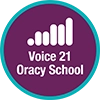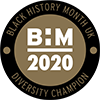Through Humanities subjects we will open students’ eyes to their global community, past, present and future, giving them the knowledge and skills to fully participate in the modern world.
Head of Faculty
Mrs H. Carr-Brown (h.carr-brown@temac.co.uk)
Curriculum Intent
The curriculum in the Humanities faculty shares the wider school vision to equip all students with the knowledge, skills, abilities, attributes and qualifications to pursue a fulfilling career, contribute positively to their communities and be active, global citizens.
The department includes the following subjects which are taught to all students in KS3 and are options at KS4:
The department also offers the following subjects as options at KS4:
Curriculum Implementation
Our faculty uses current research to teach a curriculum that:
- Uses enquiry questions to frame student learning
- Identifies powerful knowledge and builds this knowledge sequentially with careful consideration for where this knowledge leads next
- Provides regular opportunities for review of powerful knowledge
- Incorporates regular low stakes formative assessment strategies to deliver whole class and individual feedback
- Identifies powerful language and provides regular opportunities to apply this language to new contexts
- Explicitly links powerful knowledge and language to other academic disciplines and the wider world
- Develops key disciplinary skills to allow students to become successful in each subject area





















